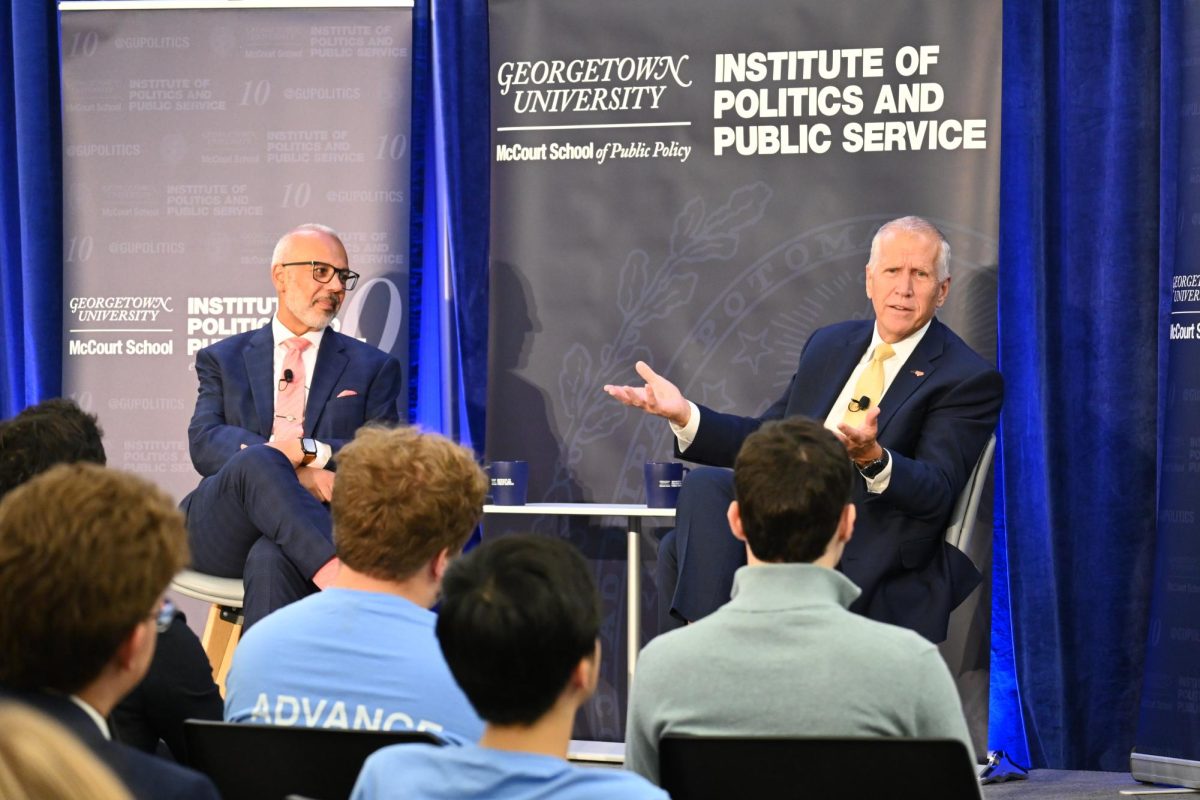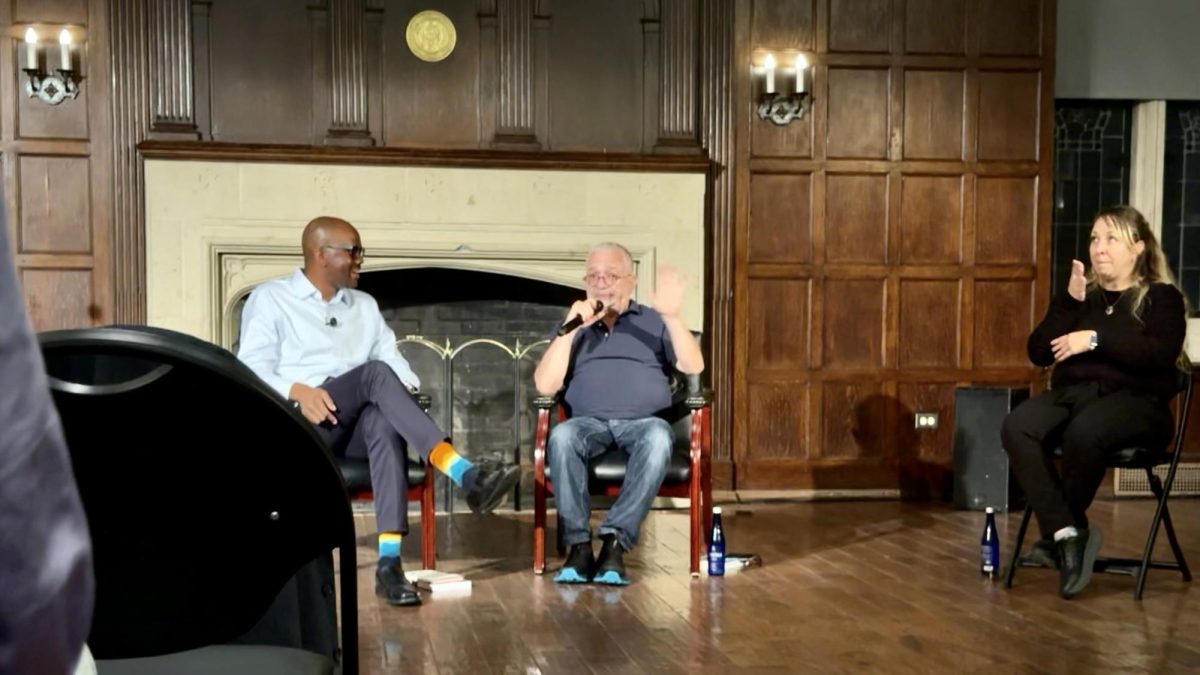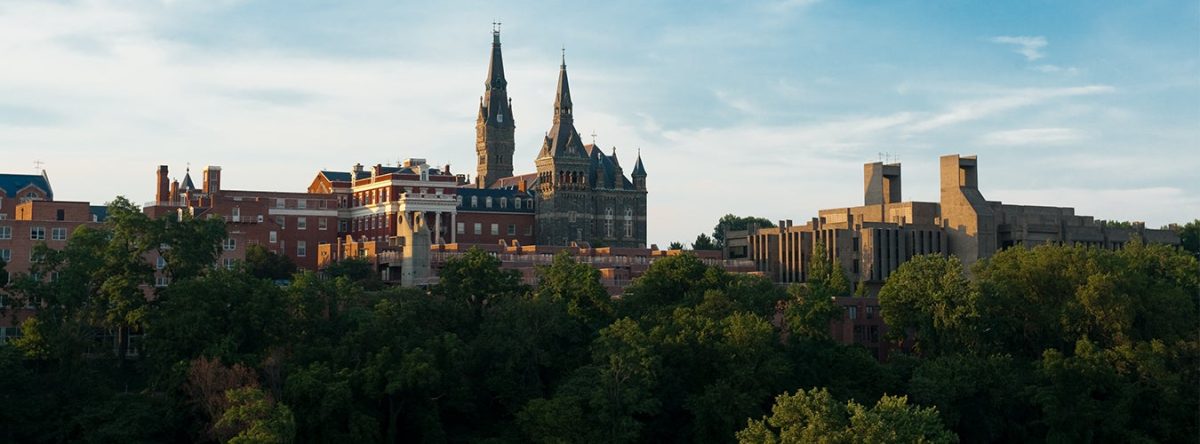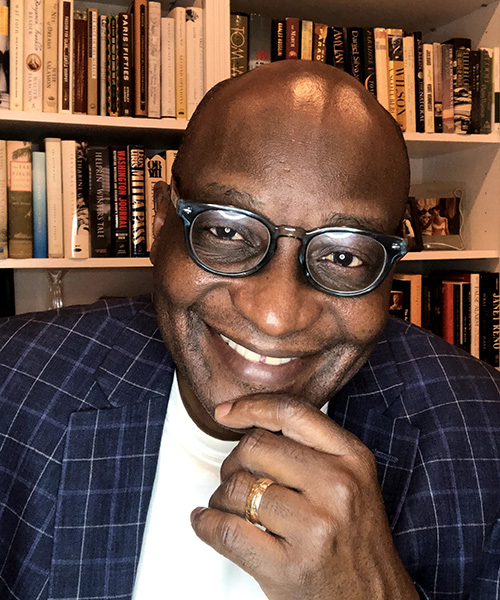A former U.S. ambassador to the United Kingdom and France defended international dialogue and recounted her diplomatic experiences at a Georgetown University event Oct. 6.
Jane Hartley, the former ambassador, argued in favor of international alliances, drawing on her experience representing the United States, focusing on counterterrorism, climate diplomacy and international conflicts. The event, hosted by the Georgetown University School of Foreign Service (SFS) and moderated by SFS Dean Joel Hellman, was held in Riggs Library.
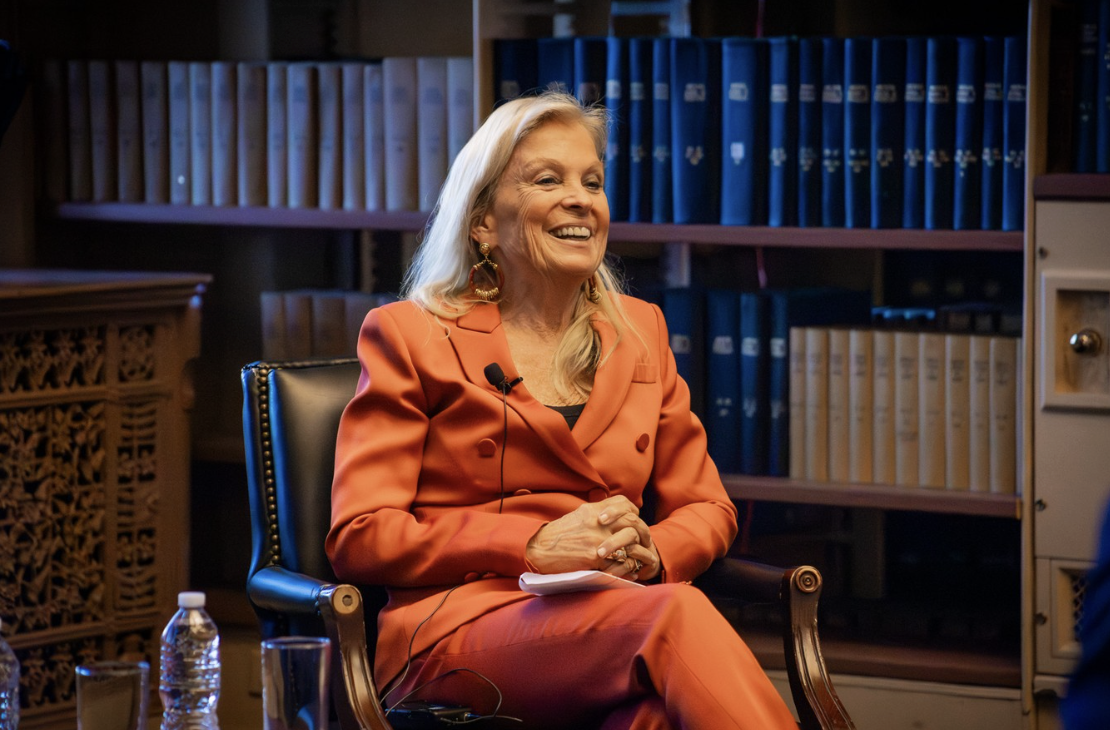
(@georgetown_sfs/Instagram)
Hartley said the international community underestimates allyship’s importance, especially given the United States’ increasingly tenuous relationships with allies throughout President Donald Trump’s second term.
“Countries that we work with are realizing now they may have to be on their own,” Hartley said at the event. “We cannot do it alone — not to realize that allies make you stronger, not weaker, is a mistake.”
Gary Hayes (SFS ’79), the executive director of the non-profit Institute for Global Collaboration, who introduced Hartley, said Hartley had an inspiring career across the public and private sectors.
“Not only are your observations and insights enlightening, they’re also inspiring,” Hayes said to Hartley at the event. “Equally inspiring is the example you’ve set with your own career, moving between the private and public sectors as opportunities presented themselves, so you could contribute to the issues you most believe in.”
“She’s really practiced what I think the School of Foreign Service tries to do so well — which is to bring all the different influences and interests together,” Hayes added.
In addition to her diplomacy experience, Hartley previously worked for a global consulting firm and a broadcasting group.
Hartley said she hopes for the United States and the United Kingdom’s long-standing relationship — known as a “special relationship” — to be rebuilt, as many diplomats fear the alliance is deteriorating.
“Everybody talks about the ‘special relationship,’ but it is deep and it is real,” Hartley said. “This is what the special relationship is and what that means — it is trust, it is history, it is having each other’s back, it is working together on the toughest problems. We knew what the U.K. strategy was; they knew what ours was. We knew whatever our goal — supporting democracy, freedom, rule of law — we were in it together.”
Hartley added that strong international connections between the United States and the European Union are necessary.
“It is government-to-government, but it’s way more than that,” Hartley said. “It’s the exchange in terms of education, it’s the exchange in terms of arts — even sports. That’s important and that will keep the bond, so when it is the right time, we have to re-activate these alliances.”
Hartley said she faced difficulties navigating her career and encouraged students to remain engaged in public service.
“Every piece of what I’d done, whether it was in the foreign service or not, added up to something,” Hartley said. “For me, the main way I felt I could make a difference was public service. Don’t give up your dream. Your patriotism, your commitment to our country, are going to be important.”
Amanda Bell (SFS ’28), who attended the event, said Hartley showed her what working in diplomacy is like.
“I think that’s very inspiring to see what day-to-day life at an embassy is like, and I am so inspired by everything that she’s accomplished and the way she’s been able to form such powerful connections,” Bell told The Hoya.
Before her time as a diplomat, Hartley worked for the Democratic National Committee as the executive director of the Democratic Mayors’ Conference and the U.S. Department of Housing and Urban Development as the director of congressional relations.
Karen Sunando (SFS ’28), who also attended the event, said she found Hartley’s experiences helpful for understanding foreign affairs career paths.
“I feel like when she was talking about how her career in the private sector connected to her experiences in the way she worked as an ambassador — that was super insightful as I try to navigate my own career path,” Sunando told The Hoya.
Hartley said open communication is vital for nations to maintain strong relationships.
“Even when we disagree, the dialogue and communication has to continue,” Harley said. “We never should stop talking to each other — never, never, never.”




